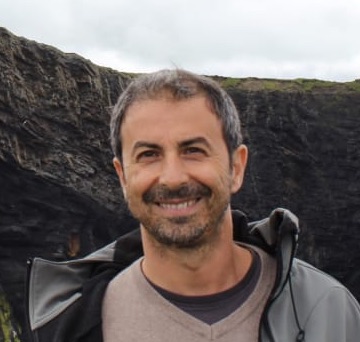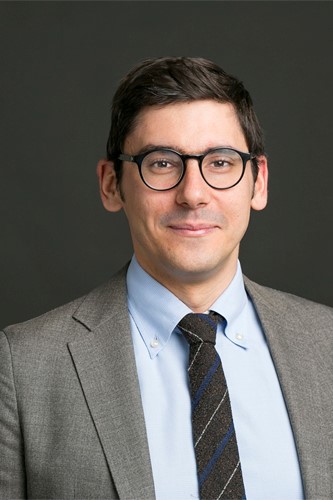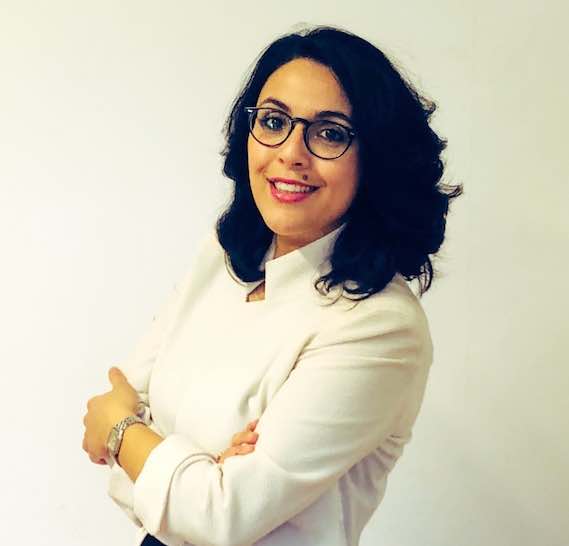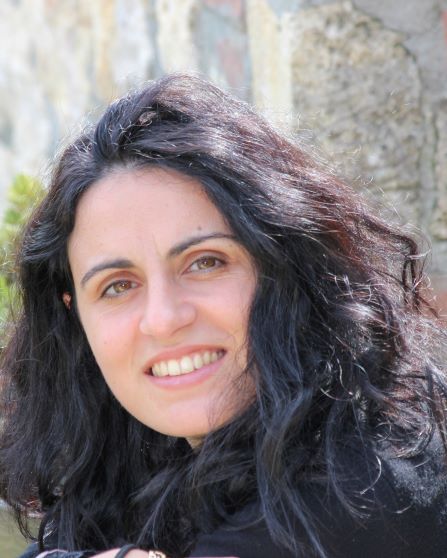Studying at the University of Verona
Here you can find information on the organisational aspects of the Programme, lecture timetables, learning activities and useful contact details for your time at the University, from enrolment to graduation.
Academic calendar
The academic calendar shows the deadlines and scheduled events that are relevant to students, teaching and technical-administrative staff of the University. Public holidays and University closures are also indicated. The academic year normally begins on 1 October each year and ends on 30 September of the following year.
Course calendar
The Academic Calendar sets out the degree programme lecture and exam timetables, as well as the relevant university closure dates..
| Period | From | To |
|---|---|---|
| primo semestre (lauree magistrali) | Oct 4, 2021 | Dec 17, 2021 |
| secondo semestre (lauree magistrali) | Feb 21, 2022 | May 13, 2022 |
| Session | From | To |
|---|---|---|
| sessione invernale | Jan 10, 2022 | Feb 18, 2022 |
| sessione estiva | May 23, 2022 | Jul 8, 2022 |
| sessione autunnale | Aug 22, 2022 | Sep 23, 2022 |
| Session | From | To |
|---|---|---|
| sessione autunnale (validità a.a. 2020/2021) | Dec 6, 2021 | Dec 10, 2021 |
| sessione invernale (validità a.a. 2020/2021) | Apr 6, 2022 | Apr 8, 2022 |
| sessione estiva (validità a.a. 2021/2022) | Sep 5, 2022 | Sep 6, 2022 |
Exam calendar
Exam dates and rounds are managed by the relevant Economics Teaching and Student Services Unit.
To view all the exam sessions available, please use the Exam dashboard on ESSE3.
If you forgot your login details or have problems logging in, please contact the relevant IT HelpDesk, or check the login details recovery web page.
Academic staff
 eleonora.branca@univr.it
eleonora.branca@univr.it
 mario.furno@univr.it
mario.furno@univr.it

Peluso Eugenio
 eugenio.peluso@univr.it
eugenio.peluso@univr.it
 045 8028104
045 8028104
 francesca.rossignoli@univr.it
francesca.rossignoli@univr.it
 0444 393941 (Ufficio Vicenza) 0458028261 (Ufficio Verona)
0444 393941 (Ufficio Vicenza) 0458028261 (Ufficio Verona)
Study Plan
The Study Plan includes all modules, teaching and learning activities that each student will need to undertake during their time at the University.
Please select your Study Plan based on your enrollment year.
1° Year
| Modules | Credits | TAF | SSD |
|---|
2° Year activated in the A.Y. 2022/2023
| Modules | Credits | TAF | SSD |
|---|
Two modules among the followingOne module between the following| Modules | Credits | TAF | SSD |
|---|
| Modules | Credits | TAF | SSD |
|---|
Two modules among the followingOne module between the following| Modules | Credits | TAF | SSD |
|---|
Legend | Type of training activity (TTA)
TAF (Type of Educational Activity) All courses and activities are classified into different types of educational activities, indicated by a letter.
Type D and Type F activities
| years | Modules | TAF | Teacher |
|---|---|---|---|
| 1° 2° | The fashion lab (1 ECTS) | D |
Caterina Fratea
(Coordinator)
|
| 1° 2° | The fashion lab (2 ECTS) | D |
Caterina Fratea
(Coordinator)
|
| 1° 2° | The fashion lab (3 ECTS) | D |
Caterina Fratea
(Coordinator)
|
| years | Modules | TAF | Teacher |
|---|---|---|---|
| 1° 2° | Job Club | D |
Paola Signori
(Coordinator)
|
| 1° 2° | Marketing plan | D |
Virginia Vannucci
(Coordinator)
|
| 1° 2° | Soft skills Coaching Days (Esu 4 job) - 2021/2022 | D |
Paola Signori
(Coordinator)
|
| years | Modules | TAF | Teacher |
|---|---|---|---|
| 1° 2° | Internationalization and Sustainability. Friends or Enemies? | D |
Angelo Zago
(Coordinator)
|
| 1° 2° | Internationalization and Sustainability. Friends or Enemies? | D |
Angelo Zago
(Coordinator)
|
| 1° 2° | Internationalization and Sustainability. Friends or Enemies? | D |
Angelo Zago
(Coordinator)
|
| 1° 2° | Data Analysis Laboratory with R (Vicenza) | D |
Marco Minozzo
(Coordinator)
|
| 1° 2° | Data Visualization Laboratory | D |
Marco Minozzo
(Coordinator)
|
| 1° 2° | Python Laboratory | D |
Marco Minozzo
(Coordinator)
|
| 1° 2° | Data Science Laboratory with SAP | D |
Marco Minozzo
(Coordinator)
|
| 1° 2° | Advanced Excel Laboratory (Vicenza) | D |
Marco Minozzo
(Coordinator)
|
| 1° 2° | Excel Laboratory (Vicenza) | D |
Marco Minozzo
(Coordinator)
|
| 1° 2° | Programming in Matlab | D |
Marco Minozzo
(Coordinator)
|
| 1° 2° | Programming in SAS | D |
Marco Minozzo
(Coordinator)
|
| 1° 2° | Samsung Innovation Camp | D |
Marco Minozzo
(Coordinator)
|
| years | Modules | TAF | Teacher |
|---|---|---|---|
| 1° 2° | An introduction to multivariate statistical analysis using R - 2021/2022 | D |
Francesca Rossi
(Coordinator)
|
| 1° 2° | Business & Predictive Analytics for International Firms (with Excel Applications) - 2021/2022 | D |
Angelo Zago
(Coordinator)
|
| 1° 2° | What paradigms beyond the pandemic? Individual vs. Society, Private vs. Public | D |
Federico Brunetti
(Coordinator)
|
| 1° 2° | English for business and economics | F |
Angelo Zago
|
| 1° 2° | Integrated Financial Planning | D |
Riccardo Stacchezzini
(Coordinator)
|
| years | Modules | TAF | Teacher |
|---|---|---|---|
| 1° 2° | The fashion lab (1 ECTS) | D |
Caterina Fratea
(Coordinator)
|
| 1° 2° | The fashion lab (2 ECTS) | D |
Caterina Fratea
(Coordinator)
|
| 1° 2° | The fashion lab (3 ECTS) | D |
Caterina Fratea
(Coordinator)
|
| years | Modules | TAF | Teacher |
|---|---|---|---|
| 1° 2° | La metodologia SEM applicata allo studio della relazione tra gestione del rischio e performance nelle PMI | D |
Cristina Florio
(Coordinator)
|
| 1° 2° | Laboratory on research methods for business | D |
Cristina Florio
(Coordinator)
|
| 1° 2° | Professional Communication for Economics A.A. 2021-22 | D |
Claudio Zoli
(Coordinator)
|
| years | Modules | TAF | Teacher |
|---|---|---|---|
| 1° 2° | How to Enter in a Foreign Market. Theory and Applications - 2021/2022 | D |
Angelo Zago
(Coordinator)
|
International Trade and Economic Development (2022/2023)
Teaching code
4S003747
Teacher
Coordinator
Credits
9
Language
English
Scientific Disciplinary Sector (SSD)
SECS-P/02 - ECONOMIC POLICY
Period
Primo semestre (lauree magistrali) dal Oct 3, 2022 al Dec 23, 2022.
Learning objectives
Classes will cover the central topics of development economics: the determinants of economic growth, technological progress and its implications for productivity, the distributive consequences of growth and human capital accumulation, inequality, and the effect of increasing openness to trade, regional integration and global imbalances, on these dimensions. Stylized economic models will be used to understand the functioning of the relevant markets (such as the labor market and the markets of goods and commodities) and to assess the role of public intervention on them (focusing on the role of education and health policies, redistribution and trade policies). Furthermore, the course will be strongly characterized by an “evidence-based” approach: data and public reports focusing on development issues (from the World Bank, IMF, OECD, for instance) will be critically assessed upon available scientific evidence. The main goal of the classes is to develop a scientific approach to the critical analysis of data and policies for development, which can be carried forward to analyzing and critically assessing the choices of single firms operating in developed and developing countries. Students seeking positions in firms and public institutes which are active on international markets will also: i) acquire competences that are needed to value the opportunities offered by countries and markets with which Italian firms are broadly interacting; ii) master the tools needed to analyze and critically assess the financial and economic scenario characterizing countries with different degrees of development; iii) be able to evaluate risks and opportunities offered by international markets in a global context. The classes will benefit from the active participation of international lecturers and experts from international organizations.
Prerequisites and basic notions
None
Program
INTRODUCTION TO DEVELOPMENT ECONOMICS
1. An overview of economic development in different countries.
2. Understanding and measuring drivers of development: An introduction to causal inference methods.
3. Economic growth and economic development.
4. Beyond GDP: Human capital, education and public health.
5. Human capital, endogenous growth, history, expectation and istitutions.
6. Inequality (global and local), poverty and development.
7. Migration: the dual model of development and the labor market.
8. Urban agglomerations and the "New Economic Geography".
9. Credit market, inequality and development.
10. Development and public policy I.
INTERNATIONAL TRADE AND DEVELOPMENT
11. International trade and development: facts and myths.
12. International trade, globalization, labor market and inequality.
13. Development and public policy II: Trade policies.
Additional material (reports, research articles), as well as a detailed list of the chapters of the book treated in the classroom, will be provided by the teacher during the semester.
Bibliography
Didactic methods
In-person lectures and students presentations
Learning assessment procedures
The exam is written and compulsory for all students. The exam lasts 90 minutes and consists of approximately 10 open questions covering the entire course program. The score of the questions varies according to their difficulty. In all cases, the student must demonstrate that they know how to use the tools learned during the course to motivate the answers given.
FOn a voluntary basis, students can also obtain an “assignment grade” which integrates the exam grade (without replacing it), based on two components:
1) A “group” component (min = 2, max = 3 people per group ), based on an “essay” that summarizes and comments on some working documents agreed with the teacher (for example, one or more chapters of the World Development Report). The essay is due on January 2023.
2) An “individual” component evaluated through participation in the course blog, in which each student is asked to elaborate on her class notes.
The “assignment grade” allows students to integrate the exam grade based on additional work to be completed during the semester. This possibility will be offered only for the 2023 winter exam session (two sessions).
Evaluation criteria
The exam grade captures the student’s ability in using the concepts and knowledge developed during the course as instruments to support and validate their answers. Answers to the exam question take the form of a short essay.
The “assignment grade” depends on the commitment that the student demonstrates during the semester in terms of:
- working on the additional readings list provided by the teacher.
- Understanding and contextualizing the readings, as well as criticizing them when needed.
- Exhibit academic writing skills.
- Developing and presenting to the class some of the topics covered in class.
Criteria for the composition of the final grade
The exam grade is based on a 31/30 scale. Each exam question receives a score that varies according to the level of difficulty of the question and the completeness, clarity and correctness of the answer provided. The exam grade is the sum of the scores obtained on all questions.
For students who wish to do so, there is an assignment grade rated on a 30/30 scale. The grade is composed as follows:
- Group component grade: 0-20
- Individual component grade: 0-10
The final grade of the exam is determined as follows:
Final grade = max {exam grade; 0.5 * exam grade + 0.5 * (group component grade + individual component grade)}.
- The exam passed if exam grade> = 17.5, regardless of the assignment grade.
- The maximum grade (30 cum laude) is obtained if final grade> 30.
- The possibility of benefiting from an assignment grade is limited to the first two exam sessions (winter session 2023).
- Those who decide not to use the assignment grade will get a final grade = exam grade.
Exam language
English
Career prospects
Module/Programme news
News for students
There you will find information, resources and services useful during your time at the University (Student’s exam record, your study plan on ESSE3, Distance Learning courses, university email account, office forms, administrative procedures, etc.). You can log into MyUnivr with your GIA login details: only in this way will you be able to receive notification of all the notices from your teachers and your secretariat via email and also via the Univr app.
Linguistic training CLA
Internships
Gestione carriere
Student login and resources
Prova finale
La prova finale consiste in un elaborato in forma scritta di almeno 60 cartelle, che approfondisce un tema a scelta relativo a uno degli insegnamenti previsti dal piano didattico dello studente. Il tema e il titolo dell’elaborato dovranno essere selezionati in accordo con un docente dell’Ateneo di un SSD fra quelli presenti nel piano didattico dello studente. Il lavoro deve essere sviluppato sotto la guida del docente. La tesi è oggetto di esposizione e discussione orale, in una delle date appositamente stabilite dal calendario delle attività didattiche, dinanzi a una Commissione di Laurea nominata ai sensi del RDA. In accordo con il Relatore, la tesi potrà essere redatta e la discussione potrà svolgersi in lingua inglese.
Per maggiori informazioni e la consultazione delle scadenze e delle commissioni di laurea si rimanda all'apposita sezione dei Servizi di Segreteria studenti.
List of thesis proposals
| theses proposals | Research area |
|---|---|
| PMI (SMES) and financial performance | MANAGEMENT OF ENTERPRISES - MANAGEMENT OF ENTERPRISES |
| I modelli organizzativi ex. d.lgs 231/2001: diffusione sul territorio | Various topics |
Modalità di frequenza, erogazione della didattica e sedi
Le lezioni di tutti gli insegnamenti del corso di studio, così come le relative prove d’esame, si svolgono in presenza.
Peraltro, come ulteriore servizio agli studenti, è altresì previsto che, salvo diversa comunicazione del singolo docente, le lezioni siano videoregistrate e che vengano messe a disposizione sui relativi spazi e-learning degli insegnamenti alcune settimane dopo il loro svolgimento. Eccezioni a questa tempistica saranno possibili solo nel caso degli studenti a tempo parziale.
La frequenza non è obbligatoria.
Maggiori dettagli in merito all'obbligo di frequenza vengono riportati nel Regolamento del corso di studio disponibile alla voce Regolamenti nel menu Il Corso. Anche se il regolamento non prevede un obbligo specifico, verifica le indicazioni previste dal singolo docente per ciascun insegnamento o per eventuali laboratori e/o tirocinio.
È consentita l'iscrizione a tempo parziale. Per saperne di più consulta la pagina Possibilità di iscrizione Part time.
La sede di svolgimento delle lezioni e degli esami è l'University Hub





















